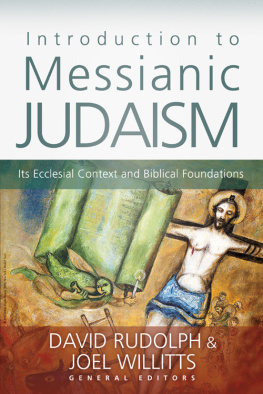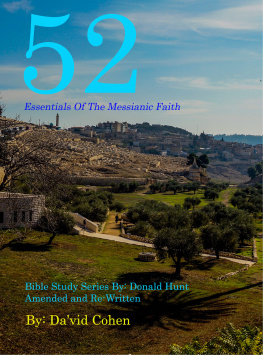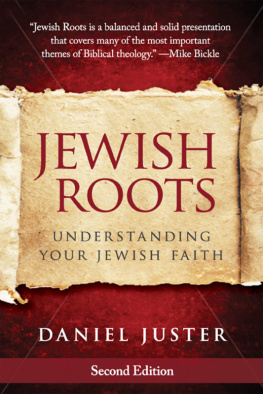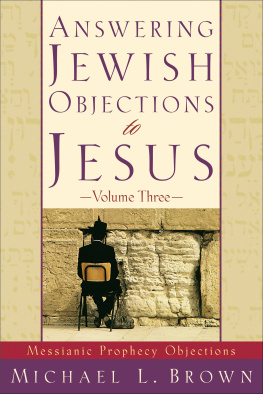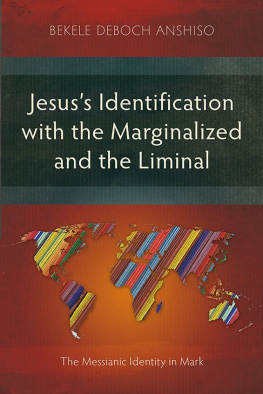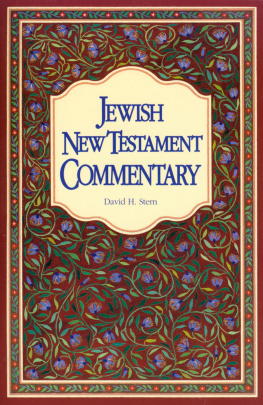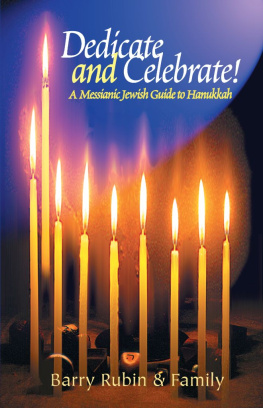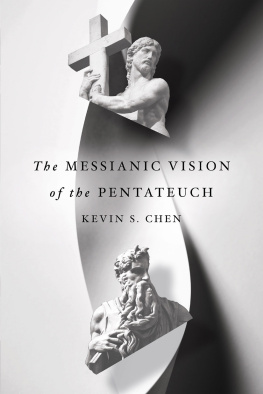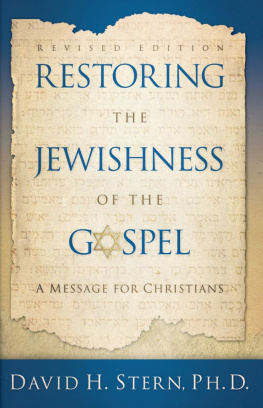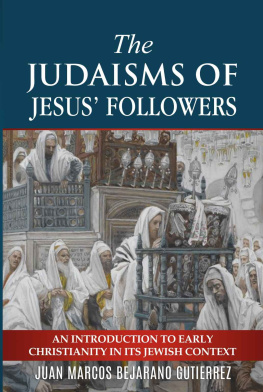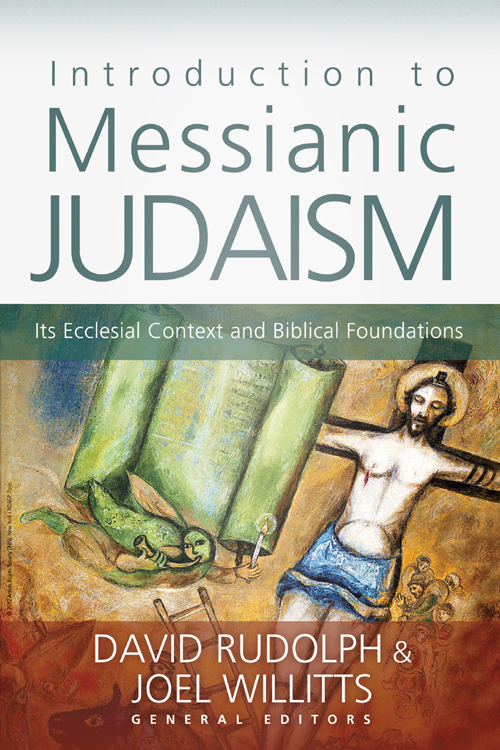Richard Bauckham (PhD, Cambridge University) is senior scholar at Ridley Hall, Cambridge.
Darrell Bock (PhD, University of Aberdeen) is research professor of New Testament studies at Dallas Theological Seminary.
Markus Bockmuehl (PhD, Cambridge University) is professor of biblical and early Christian studies at Oxford University.
William S. Campbell (PhD, University of Edinburgh) is reader in biblical studies at the University of Wales, Lampeter.
Akiva Cohen (PhD, Tel Aviv University) is a New Testament scholar and researcher who resides in Israel.
Stuart Dauermann (PhD, Fuller Theological Seminary) is senior scholar at the Messianic Jewish Theological Institute.
John Dickson (PhD, Macquarie University) is senior research fellow at the Department of Ancient History, Macquarie University, and director of the Centre for Public Christianity.
Mitch Glaser (PhD, Fuller Theological Seminary) is executive director of Chosen People Ministries in New York City.
Scott J. Hafemann (ThD, Eberhard-Karls-Universitt Tbingen) is reader in New Testament studies at the University of St. Andrews.
Justin K. Hardin (PhD, Cambridge University) is tutor in New Testament at Oxford University.
Douglas Harink (PhD, St. Michaels College) is professor of theology at The Kings University, Alberta, Canada.
Daniel J. Harrington (SJ, PhD, Harvard University) is professor of New Testament at Boston College School of Theology and Ministry.
Daniel C. Juster (MDiv, McCormick Theological Seminary) is executive director of Tikkun International, an international network of Messianic Jewish synagogues and emissaries.
Craig Keener (PhD, Duke University) is professor of New Testament at Asbury Theological Seminary.
Carl Kinbar (D.Litt. et Phil., University of South Africa) is director of the New School for Jewish Studies.
Mark S. Kinzer (PhD, University Michigan) is the rabbi of Congregation Zera Avraham in Ann Arbor, Michigan, and senior scholar at the MJTI Center for Jewish-Christian Relations.
Elliot Klayman (JD, University of Cincinnati) is director of the School of Jewish Studies at the Messianic Jewish Theological Institute in Los Angeles, California.
Seth N. Klayman (PhD, Duke University) is the rabbi of Congregation Shaarei Shalom in Cary, North Carolina.
Russ Resnik is executive director of the Union of Messianic Jewish Congregations (UMJC).
Jennifer M. Rosner (PhD, Fuller Theological Seminary) teaches at Azusa Pacific University in Azusa, California.
David Rudolph (PhD, Cambridge University) is the rabbi of Tikvat Israel Messianic Synagogue in Richmond, Virginia, and lecturer in New Testament at the MJTI School of Jewish Studies.
Anders Runesson (PhD, Lund University) is associate professor of early Christianity and early Judaism at McMaster University.
R. Kendall Soulen (PhD, Yale University) is professor of systematic theology at Wesley Theological Seminary.
Joel Willitts (PhD, Cambridge University) is associate professor of biblical and theological studies at North Park University.
Todd A. Wilson (PhD, Cambridge University) is senior pastor at Calvary Memorial Church in Oak Park, Illinois.
Rachel Wolf is an instructor in Jewish history and thought at the International Alliance of Messianic Congregations and Synagogues (IAMCS) Yeshiva.
D AVID R UDOLPH
One of the earliest publications of the modern Messianic Jewish community, The Messianic Jew, rolled off the printing press more than a hundred years ago in December 1910. Reading this journal, one is struck by the grand vision for Messianic Judaism that its authors articulated soon after the turn of the century. A straight line can be drawn between the dreams of these Jewish pioneers and the emergence of the twenty-first-century Messianic Jewish community.
Introduction to Messianic Judaism is a portal into this movement. It provides a description of what the Messianic Jewish community looks like today at its center and on its margins. The first section of the book traces the ecclesial contours of the community, providing a sociohistorical and theological snapshot of where the community is presently and where it is heading. Alongside these chapters, part 2 includes a number of essays on biblical and theological issues central to the identity and legitimacy of Messianic Judaism.
There are now over five hundred Messianic synagogues around the world.
I grew up in one of these UMJC synagogues from the age of eight. How I became a Messianic Jew is in many ways paradigmatic of how God is moving in the lives of thousands of Jews today. The realization that Yeshua is the Messiah of Israel, the one foretold by the prophets of Israel, is often followed by a second life-transforming realization: that the God of Israel calls Jews who follow the Jewish Messiah to remain Jews and become better Jews in keeping with his eternal purposes.
This is my story. In 1975, our house was robbed. My father called 911 and the officer who received the dispatch raced to our house. While on the way, the policeman heard Jesus say to him, Tell the person you meet about me. When the policeman arrived at our home, he said, Mr. Rudolph, I think you should sit down. I have something to tell you. The policeman proceeded to tell my father about Jesus who he was and why God sent him into this world.
My father, who was a criminal lawyer at the time, felt sorry for the policeman, thinking that he had lost his mind. But as the policeman shared the message of the gospel, my father experienced being surrounded by the presence of God. It was tactile and like a force field. While this was happening, the policeman left without taking a report, having done what Jesus told him to do. After about an hour, the presence of God departed, my father fell to the floor, and he prayed, God, I am so sorry that I have not believed in you all these years. Now I know that you are real. But why did you send a Christian? Is Jesus who the Christians say he is? My father did not know the answer to this question, but he knew he was going to find out.

